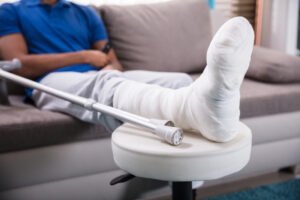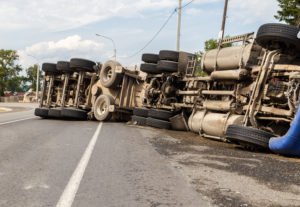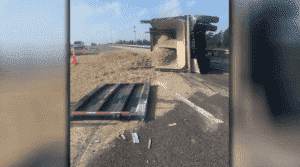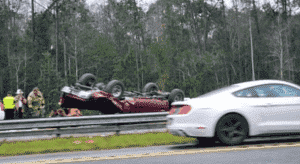
If you are injured in an out-of-state semi-truck accident, you should explore your options for seeking compensation from the at-fault driver, regardless of where your collision occurred. In addition, know that your insurance coverage follows you, and your policy is not limited to accidents in your state.
Read on to learn more about recovering damages for an out-of-state semi-truck accident and how an attorney can help.
Your Insurance Covers Out-Of-State Accidents
According to the Florida Department of Highway Safety and Motor Vehicles (FLHSMV), drivers must carry a minimum of $10,000 in personal injury protection (PIP) insurance. If you are injured in an out-of-state semi-truck accident, your PIP will still cover your medical expenses, regardless of fault.
Any other policies you hold, such as liability coverage, collision coverage, or uninsured/underinsured motorists (UM/UIM) protection, will also follow you out-of-state. No matter where your crash occurred, you should notify your insurer as soon as possible.
In general, the process for filing an out-of-state insurance claim is the same as for accidents occurring where you live. However, if you must take legal action, you will need to determine which state has jurisdiction over your case, and if you hire an attorney, they must have a license to practice in that state.
Who Has Jurisdiction Over Out-Of-State Semi-Truck Accidents?
Usually, if you are in an out-of-state accident, you should file the resulting lawsuit in the state where the crash occurred or in the defendant’s home state. You can pursue your case in any of the defendants’ home states if multiple parties are involved.
However, if your case is against a business, such as a trucking company (or its employee), you file your lawsuit where the business “resides” or in any state where the company has “sufficient minimum contacts.” So, if your accident happened in Alabama, but the trucking company also regularly delivers in Florida, you may be able to file your suit in Florida’s civil court.
A truck accident lawyer can review your case and determine jurisdiction. If you are a Florida resident, they can fight to have your lawsuit filed in the state, which will minimize your travel time and expenses. A lawyer can also assist if you are an out-of-state resident pursuing a case in Florida’s courts.
Laws Vary From State To State
Laws differ from one state to the next, and where you file your case could affect how you recover compensation. For example:
- Statutes of limitations. A state’s statute of limitations places a deadline on how long you have to seek damages in civil court. Some states may allow as little as one year or as many as six. In Florida, Florida Statutes § 95.11 allows four years to file a personal injury lawsuit and two years to sue for wrongful death. If you do not take action within the established time limit, the court will likely dismiss your case.
- Fault vs. no fault. Some states, like Florida, follow a no-fault insurance model. No-fault states require accident victims to turn to their PIP for car accident compensation. Victims cannot take action against a liable party unless they meet the state’s severe injury threshold. In fault states, victims have the unrestricted right to take action against those responsible.
- Comparative fault. In most states, you can pursue compensation even if you are partially responsible for your crash. However, the court will reduce your awards by the amount of fault it assigns to you. In some states, you cannot recover damages if your fault is greater than the threshold (usually 50 or 51 percent). Florida follows a pure comparative fault model, meaning it has no fault threshold.
Recoverable Semi-Truck Accident Damages
Recoverable semi-truck accident damages are similar in every state. In general, an attorney with our firm can help you seek compensation for:
- Current and future medical expenses, including ambulance transportation, emergency treatment, hospital stays, medical procedures, physical therapy and rehabilitation, medications, mobility aids, and long-term nursing care
- Lost income, including wages, benefits, and earnings
- Lost earning capacity if you suffered a disabling injury that interferes with your ability to work or perform your previous job
- Vehicle damages, including the cost of repairs or fair market value for a total loss
- Pain and suffering, including loss of mobility, loss of cognitive functioning, disfigurement, scarring, severe and chronic pain, depression, stress, anxiety, and lost quality of life
- Wrongful death, including compensation for medical bills, funeral and burial expenses, and the deceased’s lost services, support, financial contributions, care, protection, and companionship
Contact The Law Offices Of Anidjar & Levine If You Were Injured In An Out-Of-State Semi-Truck Accident
Contact us for a free consultation and learn more about how the Florida personal injury attorneys with our firm can help if you or a loved one suffered injuries in a semi-truck accident. A member of our team is available 24/7 to answer your questions and get you started down the road to financial recovery.










